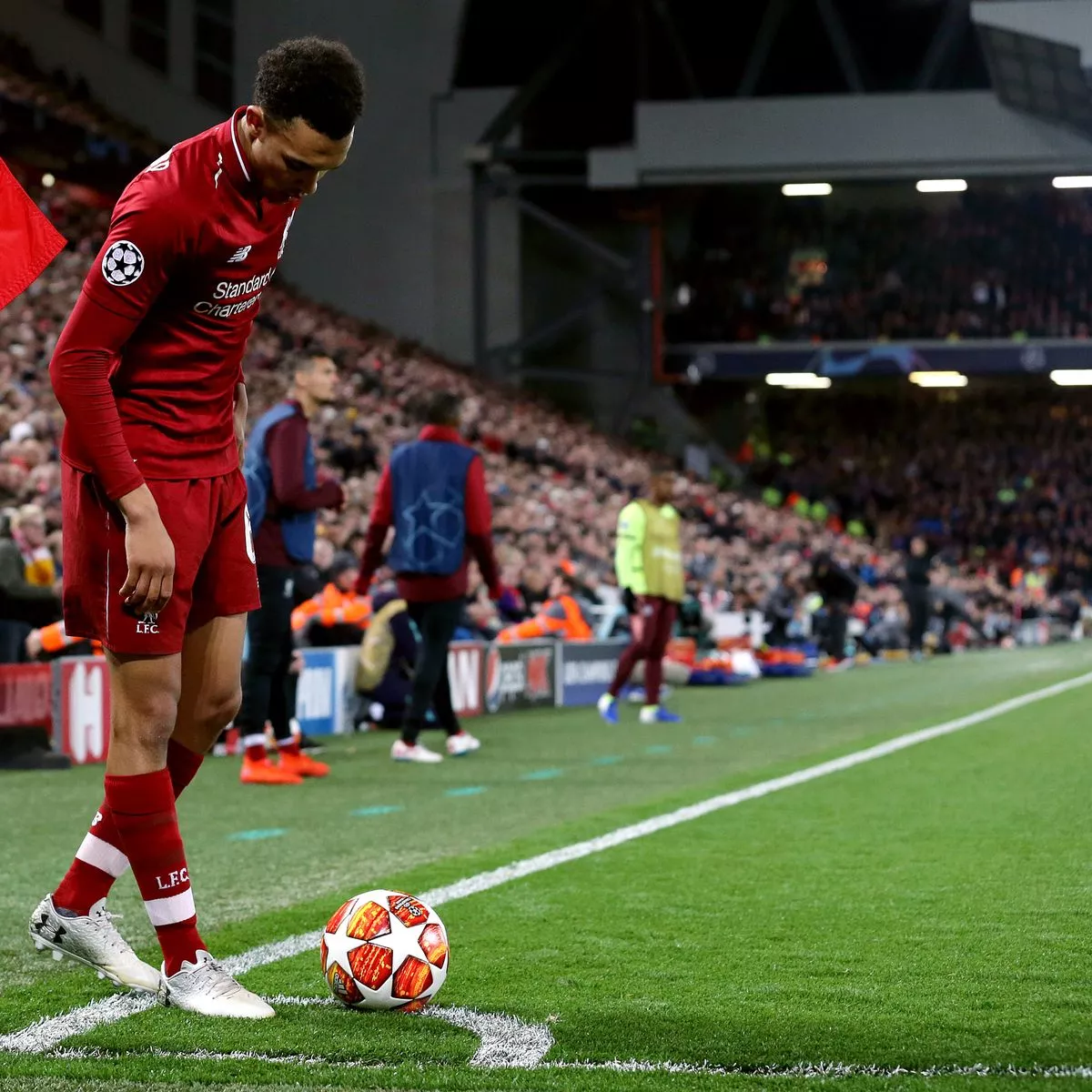Former analyst Mark Leyland describes Liverpool’s inspirational off-the-field contribution to their 4-0 victory over Barcelona.
Mark Leyland, a former analyst, has shared details about the instructions given to the ball boys that enabled Liverpool to famously defeat Barcelona 4-0 and advance to the 2019 Champions League final.
Divock Origi and Gini Wijnaldum each scored a brace as Jurgen Klopp’s team came back from a 3-0 deficit against the La Liga heavyweights in the second leg at Anfield.
Trent Alexander-Arnold’s quick corner was the source of Liverpool’s fourth goal of the game, which Origi expertly guided home. The victory is now regarded as one of the greatest European nights in the team’s history.
Leyland worked as an analyst at Anfield from 2013 to 2021 before leaving to join Eddie Howe at Newcastle United. On the Training Ground Guru podcast, he discussed how the key messages relayed to the ball boys around the pitch on the night in question helped get the ball to Alexander-Arnold quickly enough for him to swing in the pivotal – and now iconic – corner, which inspired Liverpool’s memorable win.
“It was at Anfield and it was actually (analyst) Harrison Kingston who was the brains behind it again,” Leyland said. “He identified that the ball boys weren’t getting the ball back on the pitch quick enough when we weren’t winning and we were an intense team, we wanted things to be quick.
“So he produced a video and we did it with the ball boys and we did it the day before a game, every game. It was one of the first times we did it actually, the Barcelona game – because we knew we needed goals quickly.
“So we got to 3-0 up and it was one of those moments where you almost can’t write it. It’s almost too good. The ball boy who did it is actually in Liverpool’s U21s now. He’s progressed through the system himself (Oakley Cannonier).
“They’d held a meeting before the game with all the ball boys, the [info] was sent to them and they also had a meeting before the game. It’s the same as coaching principles, this is the framework for how we work, it involves intensity, match tempo and this is how you can help our match tempo and it was about getting the ball back on the pitch as quickly as possible whether it was a throw in or a corner. It just so happened that it worked particularly well in that moment.”
Leyland also discussed how the club’s recent reputation as one of the forerunners in the field of data analysis was aided by Klopp’s openness to the growing field of data analysis in football.
“Jurgen Klopp’s role at Liverpool-I’ve used the word all-consuming again – from the moment he enters the building to the moment he leaves the building – and they are long days – he has his hands on everything,” added Leyland.
“Whether it is media, player conversations, sports science debrief or medical meetings. He very rarely has time to sit down and process. He processes all his coaching sessions, obviously, but some of the things we can help him with was the data input side.
“So a lot of the time, Jurgen was quite visual and so were his support staff. So Pete Krawietz, who is his assistant manager and analyst, Pep Lijnders, they are quite visual people. So rather than take them a plethora of data, we tried to understand what the message Ian and his team wanted us to get across and we would try and pair it up with some video or visual cues to help that process.
“One thing I would say is they were incredibly open to it, given they had not seen the data at the level of Ian Graham (former head of research) team had been working. [Klopp was] incredibly open to it, incredibly mindful it was part of the process and it helped drive a lot of their processes, particularly with Pep Lijnders, who is continuously trying to get better in his role and data is part of that process as well.”
